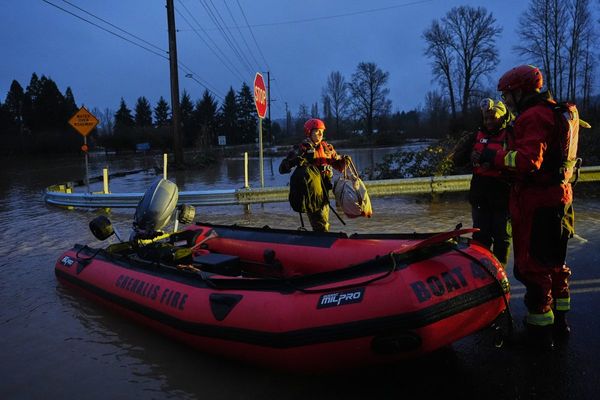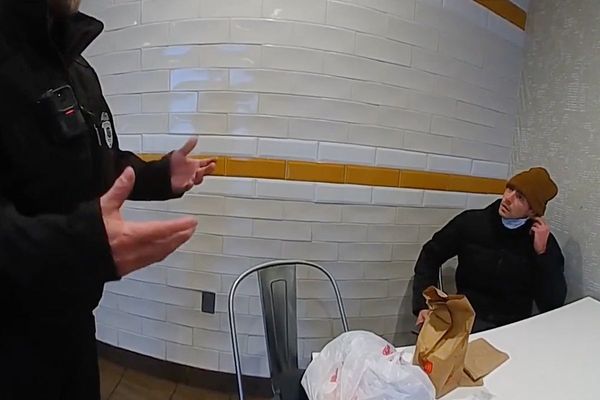ISRAELI politicians have been accused of “hypocrisy” by an expert after ministers described an Iranian strike on a hospital as a “war crime”.
An Iranian missile slammed into the Soroka Medical Centre in southern Israel early on Thursday, injuring people and causing “extensive damage”, according to officials.
Iranian state media reports that the missile strike targeted a military site next to the hospital and not the facility itself.
Separate Iranian strikes hit a high-rise apartment building in Tel Aviv and other sites in central Israel, with at least 40 people injured according to Israel’s Magen David Adom rescue service.
Israel, meanwhile, has carried out strikes on Iran’s Arak heavy water reactor, its latest attack on the country’s sprawling nuclear programme, on the seventh day of a conflict that began with a surprise wave of Israeli air strikes targeting military sites, senior officers and nuclear scientists.
Israel's deputy foreign affairs minister Sharren Haskel has called Iran's strike on the hospital "deliberate" and "criminal", while the Israeli health minister Uriel Buso said it was a war crime.
But Richard McNeil-Willson, who lectures in the Middle Eastern studies department at Edinburgh University, said while striking a hospital is a war crime, the country’s ministers are displaying hypocrisy given Israel has “time and again” attacked hospitals in Gaza.
“The bombing of a hospital is a war crime under the 1949 Geneva Convention, but it is a war crime that the Israeli state has committed time and again,” he told The National.
“Israel has not just targeted hospitals but has sought to wipe out the entire healthcare system in Gaza, in an area it is blockading and bombarding, amidst mass population displacement and acute shortages of food, water, medical supplies, fuel and shelter.
“Concern over the striking of the Soroka Medical Centre in Israel should be contrasted with the Israeli destruction of Al Ahli hospital, the siege of al-Shifa hospital in Gaza, and attacks on all 36 hospitals in Gaza.
“It must be contrasted with the killing of 227 journalists, more than any conflict in recent history; and with the scholasticide of schools, universities, and the destruction of all state infrastructure in Gaza. It must be contrasted with the entrapment, displacement and targeting of over two million Gazans in a genocide again.
“The mass murder of civilians by the Israeli State has been met by either total indifference or outright support by many politicians – including by the UK Government – and demonstrates the racism and hypocrisy not just at the heart of the Israeli state and Zionism, but in European and Western governments.”
Israeli forces have killed 70 Palestinians on Wednesday, including people waiting for aid trucks.
UK Foreign Secretary David Lammy is to meet his US counterpart Marco Rubio today to discuss the situation in the Middle East as Donald Trump continues to consider joining Israeli strikes against Iran.
Israel’s campaign has also targeted Iran’s enrichment site at Natanz, centrifuge workshops around Tehran and a nuclear site in Isfahan. Its strikes have killed top generals and nuclear scientists.
A Washington-based Iranian human rights group said at least 639 people, including 263 civilians, have been killed in Iran and more than 1300 wounded.
In retaliation, Iran has fired some 400 missiles and hundreds of drones, killing at least 24 people in Israel and wounding hundreds.
The Arak heavy water reactor is 155 miles south-west of Tehran.
Heavy water helps cool nuclear reactors, but it produces plutonium as a by-product that can potentially be used in nuclear weapons.
That would provide Iran another path to the bomb beyond enriched uranium, should it choose to pursue the weapon.
The International Atomic Energy Agency (IAEA), the United Nations’ nuclear watchdog, has been urging Israel not to strike Iranian nuclear sites. IAEA inspectors reportedly last visited Arak on May 14.
Due to restrictions Iran imposed on inspectors, the IAEA has said it lost “continuity of knowledge” about Iran’s heavy water production – meaning it could not absolutely verify Tehran’s production and stockpile.







